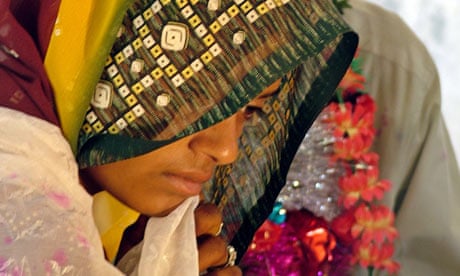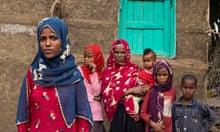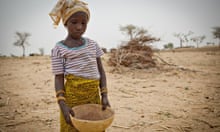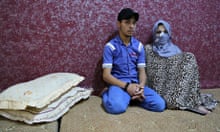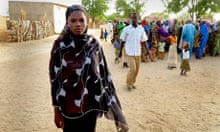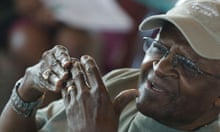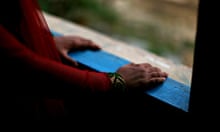By the age of 17, Zeenat had been divorced three times after forced marriages. She first wed shortly after puberty to a man who abused her, an experience that recurred in her subsequent marriages.
She became so isolated that she did not go to the hospital or ask for help. Neither had she heard of India's Protection of Women from Domestic Violence Act of 2005, which made her husband's violent outbursts not just wrong, but illegal.
Sadly, her story is all too common. Every year about 10 million girls become child brides, and one in seven girls in the developing world marries before the age of 15.
Bangladesh, Nepal and India have three of the highest rates of child marriage, with 68.7%, 56.1% and 50% respectively of girls married before the age of 18. Child marriage is not just a question of poverty – although that is a critical issue – but also of how girls are viewed in society.
"Even with higher levels of income, there is the practice of child marriage," said Care International's gender director, Theresa Hwang. "It is an issue of status; girls are valued in a lesser way. In India, girls are not seen as 'added value'. The issue is squarely tied to gender equality and social norms."
Care USA, the US arm of the anti-poverty NGO, and the American Jewish World Service (AJWS) this week received grants of $7.7m (£4.9m) and $15.3m respectively from the Kendeda fund to tackle child marriage in south Asia. Both organisations will use the money to support local NGOs.
Founded 10 years ago, the Kendeda fund worked initially on environmental sustainability in the US, but last year created a girls' rights portfolio. AJWS will focus on India, Care on Nepal and Bangladesh.
All three countries have laws against child marriage, but implementation has proved difficult. Civil child marriage laws are not enforced, and religious or social customs prevail.
In Nepal, Care supports a programme, Chunauti, that seeks to spread the message against child marriage among schools and local businesses. Care and local partners persuaded factories to put anti-child marriage slogans in their production materials. They also convinced a food catering business not to cater for child marriage ceremonies.
For Care and AJWS, the logical route is to work through local partners familiar with regional conditions and practices, and based where the pressure points are. For the local NGOs, it shows they are not working alone on a difficult problem only now receiving the attention it merits.
The UN high-level panel appointed by Ban Ki-moon, the UN secretary general, to look at development targets to replace the millennium development goals when they expire in 2015, has urged the recognition of child marriage as a key indicator of female empowerment. In another sign that child marriage is moving up the development agenda, Girls Not Brides, the global partnership to end child marriage, was formed in September 2011 to tackle the problem.
Empowerment can come through that catch-all term, livelihoods training. Groups such as Brac, the Bangladeshi NGO, for example, have created clubs in Uganda where young girls learn to develop confidence through storytelling and songwriting. They also learn more practical skills, from financial literacy and tailoring to agricultural work.
Backed by AJWS, Mohammad Bazar Backward Classes Development Society in West Bengal takes a similar approach. The organisation, which works with marginalised Muslim and tribal women and children in urban Kolkata, runs a school for girls as well as vocational training for women in the rural area of Birbhum.
"We work to build girls' aspirations, promote girls' ideas of themselves when they don't have aspirations, and engage with key decisionmakers – parents, teachers and religious leaders," said Javid Syed, Asia programme officer for AJWS.
AJWS helped change Zeenat's life. It provided her with vocational training, allowing her to become financially independent and diminishing the likelihood that economic need will turn her towards another abusive marriage. If Zeenat does marry again, the hope is that she will have the support of her family and the ability to leave the marriage if she chooses, in full knowledge of her rights.
